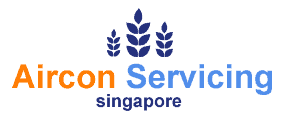How to Improve HVAC System Lifespan with Proper Care

How-to-Improve-HVAC-System-Lifespan-with-Proper-Care
How to Improve HVAC System Lifespan with Proper Care? HVAC (Heating, Ventilation, and Air Conditioning) systems are crucial for maintaining indoor comfort, especially in Singapore’s hot and humid climate.
Extending the lifespan of an HVAC system through proper care and maintenance can lead to significant cost savings and improved performance.
This article provides practical tips to help homeowners maximize the longevity of their HVAC systems.
Understanding the Basics of HVAC Systems
Components of an HVAC System
An HVAC system is composed of several key components, each playing a vital role in its overall functionality:
- Air Conditioner: Responsible for cooling the indoor air.
- Furnace: Provides heating during cooler periods.
- Ductwork: Channels the conditioned air throughout the home.
- Thermostat: Controls the temperature settings and system operation.
Typical Lifespan of HVAC Systems
The lifespan of HVAC components varies:
- Air Conditioners: Typically last 10-15 years.
- Furnaces: Can last 15-20 years.
- Ductwork: Usually lasts about 20-25 years.
- Thermostats: Often need replacement every 10 years or when upgrading to newer models.
Regular maintenance can significantly influence these lifespans, helping components operate efficiently and last longer.
Importance of Regular Maintenance

Preventive maintenance involves regular check-ups to identify and address potential issues before they become major problems. This proactive approach can prevent costly repairs and ensure the system operates at peak efficiency.
Routine inspections by a professional HVAC technician are crucial for optimal performance.
It is recommended to schedule inspections at least twice a year. These inspections help catch issues early and keep the system running smoothly.
Key Maintenance Tasks to Improve HVAC Lifespan
Filter Replacement
Regularly replacing air filters is essential for maintaining airflow and system efficiency. Dirty filters can restrict airflow, forcing the system to work harder. Filters should be replaced every 1-3 months, depending on usage and environmental factors.
Cleaning Coils
Evaporator and condenser coils play a critical role in the cooling process. Dirty coils reduce the system’s efficiency and cooling capacity. Regular cleaning, typically once a year, ensures optimal performance and prevents strain on the system.
Checking and Sealing Ductwork
Well-maintained ductwork is vital for efficient airflow. Inspect ducts for leaks and seal any gaps to prevent air loss. This improves system efficiency and maintains consistent temperatures throughout the home.
Managing the Thermostat
Setting the thermostat to optimal temperatures reduces system strain.
Maintaining consistent temperatures and avoiding drastic changes can enhance the system’s efficiency and lifespan. Recommended settings are around 24°C for cooling and 20°C for heating.
Programmable thermostats help manage HVAC system usage efficiently. They allow for setting schedules that align with occupancy patterns, reducing energy consumption when the home is unoccupied.
Addressing Common HVAC Issues Promptly

Common warning signs of HVAC issues include unusual noises, weak airflow, and inconsistent temperatures. Addressing these signs promptly can prevent further damage and costly repairs.
Addressing minor issues before they escalate into major repairs can save money and extend the system’s lifespan. Regular inspections and prompt repairs ensure the system operates efficiently.
Improving System Efficiency
Proper insulation reduces the workload on the HVAC system by maintaining a stable indoor temperature. Improving insulation in walls, attics, and around windows helps the system run more efficiently.
Minimizing heat gain through windows and other openings can improve HVAC system efficiency. Use blinds, shades, or reflective window films to reduce the amount of heat entering the home, especially during peak sunlight hours.
Regularly Updating System Components
Replacing outdated or worn-out components is essential for maintaining system efficiency.
Common parts that may need regular updates include thermostats, filters, and capacitors. Upgrading these components can enhance performance and extend the system’s lifespan.
Upgrading to modern, energy-efficient HVAC models can significantly improve system performance and longevity.
Energy-efficient systems use less power, reduce operational costs, and provide better temperature control.
Professional Services for HVAC Maintenance
Selecting a qualified HVAC technician is crucial for regular maintenance and repairs.
Look for technicians with verified credentials, extensive experience, and positive customer reviews. A reputable technician ensures high-quality service and reliable performance.
Maintenance agreements or service contracts with HVAC professionals offer several benefits.
These agreements ensure regular check-ups, priority service, and often come with discounts on repairs and parts, helping maintain the system’s efficiency and longevity.
Practical Tips for Homeowners

DIY Maintenance Tips
Homeowners can perform simple DIY maintenance tasks to keep the HVAC system running efficiently:
- Keep the outdoor unit clear of debris: Remove leaves, dirt, and other obstructions.
- Clean vents and registers: Ensure they are free from dust and obstructions.
- Check for visible issues: Look for signs of wear, leaks, or damage.
Regular Maintenance Checklist
Following a regular maintenance checklist helps ensure year-round system efficiency:
- Monthly: Replace or clean air filters.
- Quarterly: Inspect ductwork for leaks and ensure vents are clear.
- Annually: Schedule professional inspections, clean coils, and check refrigerant levels.
How to Improve HVAC System Lifespan with Proper Care – Conclusion

Proper care and maintenance are essential for extending the lifespan of HVAC systems.
Regular maintenance, timely repairs, and system upgrades can lead to long-term performance, efficiency, and cost savings.
By adopting these practices, homeowners can ensure a comfortable and energy-efficient living environment, making the most of their HVAC investment!
Are you seeking professional and reliable aircon servicing technicians in Singapore? Contact us today!




